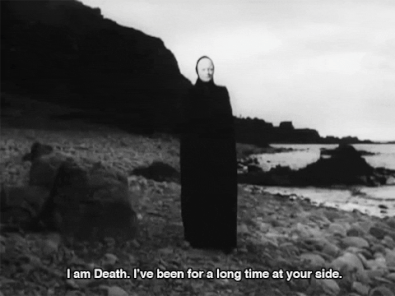Exploiting Death
Tantz_Aerine at Dec. 19, 2020, midnight

When a character the story's cast and audience identify and are familiar with dies, the effect is, or should be, monumental.
Not only because that effectively ends that character's journey (and arc), but also because as an event it has immediate ramifications for all the surviving characters.
First off, they won't get to interact with that character ever again (except in dreams/flashbacks), which means that whatever MO they had, whatever routine they had concerning this character, is now gone and will need to be replaced with another.
The character's impact on the others will cease, at least in the form it took when the character was alive: if the character was a pacifier, now belligerence won't be as efficiently checked. If the character was the cohesive element between the rest, now the surviving characters will need to somehow not scatter OR scatter with everything that means. If the character was the strategist of the group then… well, then they are in big trouble.
And that's just the logistics of the matter. There's also the emotional impact.
Everyone will react differently when experiencing loss, but everyone will react, even if that reaction is so subtle others thing there is none to observe.
Reaction to a character's death can be defining for the survivors, because the intense emotions can catalyze them into a different version of themselves, or set them on an arc they wouldn't have otherwise embarked.
So, for a writer or creator, a character's death is a powerful tool which can't be used lightly, but when it IS used, should be exploited to the fullest.
The character that dies leaves a void behind, an emptiness where they stood, which will take time to fill by those who survive him/her, if it is ever filled at all. And this impact has to come across to the audience through definite yet indirect manners: how the survivors' personalities change as manifested in their dialogue (they may become too aggressive or too polite or too quiet, for example), their reactions (they may overreact or underreact to situations, they may isolate or be too social/clingy, they may even develop elements of PTSD, or act out of guilt, or anything in between), their new 'blind spots' that weren't there before because the dead character was the one picking them out for the rest, and so on.
Of course, this works on the audience better if the character stays dead. No take-backsies.
STILL… I do believe that if done right, it can work just as well even if the dead character somehow returns.
It might even be the onset for a new arc. When the character returns, he/she won't be returning to the same friends he/she left. They will be changed people, in all the subtle manners previously mentioned- and that doesn't get nixed just because the death wasn't a real death. Things like grief will be soothed and assuaged, but the impact of the trauma will remain.
And it probably should work both ways- the character that returns from death shouldn't be the same either. But that's something to discuss for next time.
Don’t forget you can now advertise on DrunkDuck for just $2 in whichever ad spot you like! The money goes straight into running the site. Want to know more? Click this link here! Or, if you want to help us keep the lights on you can sponsor us on Patreon. Every bit helps us!
Special thanks to our patrons!!



Justnopoint - Banes - RMccool - Abt_Nihil - PhoenixIgnis - Gunwallace - Cdmalcolm1 - PaulEberhardt - dragonaur - Emma_Clare - FunctionCreep - Eustacheus - SinJinsoku - Smkinoshita - jerrie - Chickfighter - Andreas_Helixfinger - Tantz_Aerine - Epic Saveroom - Genejoke - Davey Do - Spark of Interest - Gullas - Damehelsing - Roma - NanoCritters - Scott D - Bluecuts34 - j1ceasar - Tinchel - PhillipDP - Teh Andeh - Peipei - Digital_Genesis - Hushicho - Sad Demon Comics - JediAnn Solo - Kiddermat - BitterBadger - Palouka - cheeko


Comments
Please login to comment.
Login or Register${ comment.author }} at
${ comment.author }} at